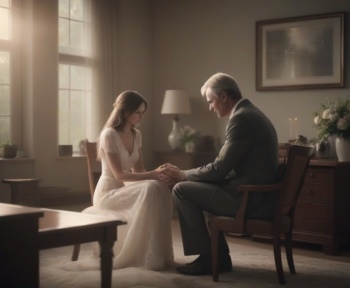In the intricate fabric of celebrity culture, transitioning into the limelight entails a journey fraught with excitement and relentless scrutiny. Chappell Roan, a rising pop singer, is experiencing the multifaceted nature of fame firsthand. As she navigates through this vigorous and glamorous path, another seasoned pop figure, Miley Cyrus, extends her support and empathy, underscoring the importance of kindness in an otherwise critical world.
Navigating the complex dynamics of early fame, Miley Cyrus knows too well the trials and tribulations young stars endure. Speaking from a place of experience in a recent Harper’s Bazaar piece, Cyrus delved into the rigors of modern fame, particularly under the magnifying lens of continuous digital monitoring. “The industry can be brutally invasive,” Cyrus revealed, explaining how enduring the constant influx of public opinion is a formidable challenge for newcomers. She maintains a safe distance from social media disruptions by deliberately staying abstracted from direct control of her platforms.
The origins of Cyrus and Roan’s relationship are marked by casual, yet meaningful, support—a gesture reflecting Cyrus’s recognition of the pressures faced by budding stars. Roan, known for hits like “Hot to Go!” had faced critical backlash for openly discussing the boundaries she sets with her audience, which some misinterpreted as diva-like behavior. Cyrus’s defense suggests an understanding that such misconceptions stem from not recognizing the pressures of balancing public interactions with personal well-being.
Chappell Roan’s early career was further complicated by her political comments. Her decision not to explicitly support Kamala Harris during a contentious political season introduced her to intense public scrutiny and widespread speculation about her political stance. Addressing this, Roan clarified that her discontent was rooted in broader administrative policies, particularly involving foreign affairs, and not a direct rebuttal of individual political figures. This instance highlights the importance and influence of celebrities in political discourse, shedding light on the nuanced positions they often hold.
Despite navigating these intricate socio-political and personal challenges, Roan’s artistic career has seen an upward trajectory. Notably, an incident at the MTV Video Music Awards revealed the tough balancing act she faces, defending her space while under the public eye—illustrative of the assertive boundaries necessary for public figures. Amidst these trials, her talent remains unequivocal with six nominations at the upcoming 2025 Grammy Awards—a strong testament to her staying power and appeal in the industry.
Miley Cyrus, transitioning from her adolescence on Disney’s “Hannah Montana” to a global pop sensation, experienced a similar glare of the media spotlight. This shared journey through the facets of fame generously informs her empathy for individuals like Roan. In her comments, Cyrus didn’t just offer support but emphasized the broader need for compassion within the entertainment industry, stressing the challenges are often overshadowed by the glamorous exterior.
Her reflections in the Harper’s Bazaar feature resonate with anyone familiar with the dichotomies of a public life. Describing her experiences as a mixture of “yin and yang, heaven and hell; dark and light,” Cyrus eloquently voices the complex reality of living under constant scrutiny. This perspective advocates for a nuanced understanding of celebrity lives, emphasizing the coexistence of various extremes that define human experiences.
As Roan continues to forge her path in the limelight, the mentorship and nurturing stance of artists like Cyrus likely play a crucial role in shaping a supportive environment. This case extends beyond individual narratives, touching on a collective responsibility within the celebrity ecosystem to foster a culture that supports rather than condemns.
The evolving dynamics of celebrity culture demand an environment where burgeoning stars are given space to grow and express authentically without undue criticism. By championing a supportive culture, figures like Miley Cyrus not only aid in the personal growth of emerging talents like Chappell Roan but also underline a collective societal duty towards fostering understanding and respect. In this way, the industry can hope to not just produce stars but nurture individuals who are as resilient as they are talented, equipped to handle the nuances of their high-profile roles with grace and dignity.




